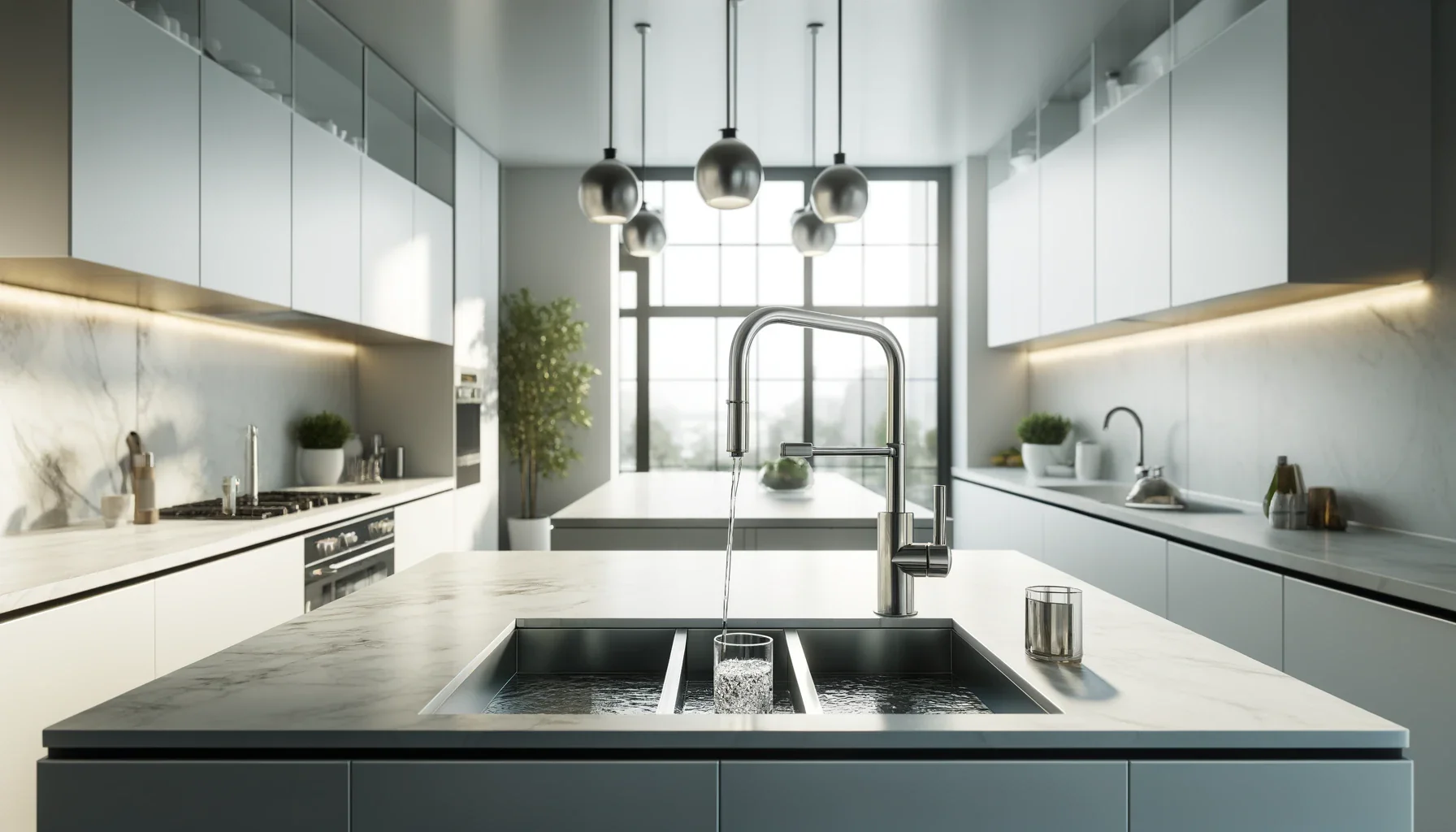In today’s world, having clean, safe water is more important than ever. With concerns about water quality and contaminants on the rise, choosing the right water filtration system for your home is a critical decision. Whether you’re dealing with city water or well water, the right system can make a significant difference. At Clean Stream Plumbing Ottawa, we understand the importance of ensuring your water is pure and healthy for you and your family. This ultimate guide will help you navigate the various options and make an informed choice that best suits your needs.
Understanding Your Water Quality
Before diving into the types of filtration systems available, it’s essential to understand your water quality. Different water sources can have different contaminants, and identifying these is the first step in selecting the right filtration system.
City water, for example, is often treated with chemicals such as chlorine and chloramine, which can affect taste and odour. Well, water may contain impurities like sediment, iron, or even bacteria, depending on the local geology. Testing your water will provide a clear picture of what you’re dealing with and help you choose a system that targets your specific needs.
Types of Water Filtration Systems
Water filtration systems come in various types, each designed to tackle different contaminants. Here’s a brief overview of the most common systems:
- Activated Carbon Filters: These are among the most popular types of filters due to their ability to remove chlorine, sediment, volatile organic compounds (VOCs), and bad tastes and odours. They work by using activated carbon to adsorb impurities.
- Reverse Osmosis (RO) Systems: RO systems are highly effective at removing a wide range of contaminants, including dissolved solids, heavy metals, and salts. They use a semi-permeable membrane to separate contaminants from water.
- Ultraviolet (UV) Purifiers: UV purifiers use ultraviolet light to kill bacteria, viruses, and other microorganisms. They are an excellent choice for disinfecting water but may not remove chemical contaminants.
- Distillation Units: These systems heat water to create steam, which is then condensed back into water. Distillation effectively removes minerals, chemicals, and biological contaminants.
- Water Softeners: Designed to address hard water issues, water softeners use ion exchange to remove calcium and magnesium, which can cause scaling and damage to appliances and plumbing.
Factors to Consider When Choosing a Water Filtration System
When selecting a water filtration system, consider the following factors:
- Contaminants Present: Based on your water test results, determine which contaminants need to be addressed. For example, if your water has high levels of chlorine, an activated carbon filter might be sufficient. If there are heavy metals or microbial contaminants, a more advanced system like RO or UV might be necessary.
- Water Usage: Consider how much water your household uses. Systems vary in capacity, so it’s essential to choose one that can handle your daily consumption. For larger households, you may need a system with higher flow rates or multiple filters.
- Installation and Maintenance: Some systems are easier to install and maintain than others. Under-sink systems may require professional installation, while pitcher filters are more user-friendly. Regular maintenance is crucial for keeping your system in top working condition.
- Cost: Evaluate both the upfront cost and ongoing maintenance expenses. While some systems may have a higher initial cost, they could save you money in the long run by reducing the need for bottled water and extending the life of appliances.
Ottawa Water Filtration: Local Considerations
When selecting a water filtration system, it’s essential to consider the local context, especially if you are in the city. Ottawa Water Filtration systems need to be well-suited for the local water quality and environmental conditions. For instance, the city’s tap water is generally treated and meets safety standards, but some residents may still prefer additional filtration to address specific concerns like taste or to protect their plumbing systems from potential issues.
Local water filtration experts can offer valuable insights into the best systems for Ottawa’s water quality and provide installation and maintenance services tailored to your needs. They can help you choose a system that not only meets your filtration needs but also aligns with local water regulations and standards.
Installation and Maintenance Tips
Proper installation and maintenance are key to ensuring your water filtration system performs effectively. Here are some tips:
- Professional Installation: For complex systems like RO or UV purifiers, consider hiring a professional to ensure correct installation. Improper installation can lead to leaks, reduced efficiency, and other issues.
- Regular Maintenance: Follow the manufacturer’s recommendations for filter replacements and system maintenance. Regular maintenance helps to keep the system running efficiently and prolongs its lifespan.
- Monitor Water Quality: Periodically test your water to ensure the filtration system is performing as expected. If you notice any changes in taste, odour, or appearance, it might be time to check the system or replace filters.
Conclusion
Choosing the right water filtration system for your home involves understanding your water quality, exploring different types of filtration systems, and considering factors such as usage, installation, and cost. By following this guide, you can make an informed decision and ensure that your family enjoys clean, safe water. For personalized advice and installation services in the city, don’t hesitate to consult with local experts like Clean Stream Plumbing Ottawa to find the perfect solution for your home.
